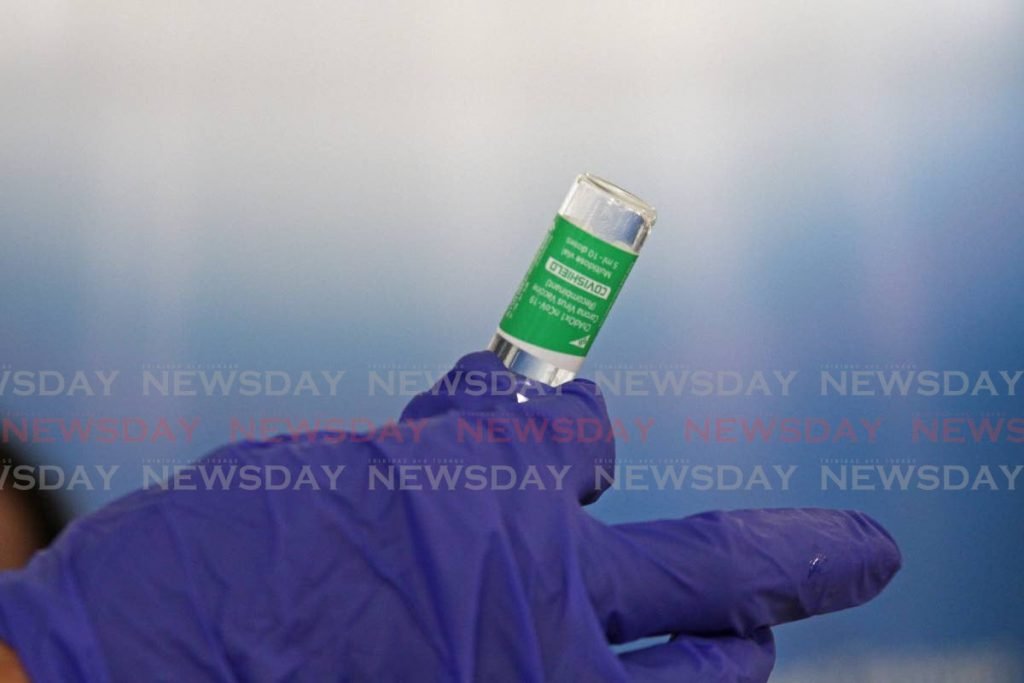Dr Hinds: Blood clot worry won't stop Trinidad and Tobago's vaccine campaign

There has been no change in plans to vaccinate the people of TT in the face of reports of blood clots in people who received the AstraZeneca vaccine in Europe, said technical director of epidemiology, Dr Avery Hinds.
This as several European and Asian countries including Denmark, Norway, Iceland, Bulgaria, Luxembourg, Estonia, Lithuania, and Latvia, suspended their AstraZeneca vaccination campaigns because of reports of rare blood coagulation disorders in some who received the vaccine.
Replying to a question at the ministry’s virtual health conference on Saturday, Hinds referred to a World Health Organization (WHO) statement which said WHO was aware that some countries in the European Union suspended a specific batch of AstraZeneca vaccine but the action was a precaution while an investigation into the reports was finalised.
WHO’s Global Advisory Committee on Vaccine Safety, which reviews all covid19 vaccine safety concerns, was investigating and as soon as it gained a full understanding of any recommendation changes, the organisation would communicate it to the public immediately. The European Medicines Agency’s Pharmacovigilance Risk Assessment Committee said the benefits of the vaccine outweigh the risks so they recommend that vaccination continued.
Hinds said vaccination against covid19 did not reduce the risks of other diseases, illnesses, or medical conditions. Therefore, deaths due to other things would continue to happen even if the person is vaccinated.
“So, even though you may have an effect immediately after or soon after having a vaccine it doesn’t mean it is caused by the vaccine.
“So, at this point while we await the further position from WHO, none of the recommendations related to who should be vaccinated will have changed.”
Dr Joanne Paul, head of the Paediatric Emergency Department, Eric Williams Medical Sciences Complex, added that clinical immunologist Dr Michele Monteil said about 50 million people received the AstraZeneca vaccine and there were negative effects in only a few cases. She therefore highly recommended the vaccine for TT’s population.
Paul said if an individual got covid19, immunity may last three to six months before its effectiveness decreased, but immunity through the vaccine could last from six months to a year.
So, even if a person was fit and healthy and would possibly only have mild symptoms, she advised them to take the vaccine.
“It’s not just about the individual. It’s about herd immunity. The more of us taking the vaccine the more herd immunity we can give.”
Meanwhile, the Caribbean Public Health Agency (Carpha) is encouraging countries to proceed with the mass vaccination of their population as it would fight the disease and contribute to the eventual end of the pandemic.
Carpha’s release on Friday said, “This was done as a precautionary measure while a full investigation is conducted into the reports. At present, it cannot be determined whether there is a link between the vaccine and the disorders.
“Adverse reactions that happen following immunisation with any vaccine need to be fully investigated to rule out various factors, for example concomitant illnesses, progression of a disease, and batch assessment, before a final decision is made by the health authorities.”
The Carpha release also explained WHO's advisory committee was carefully assessing the reports on the AstraZeneca vaccine. It also stressed that the vaccine being used in the Caribbean is not the same version or batch as the one in Europe.
It added that variants were part of the normal cycle of viruses and that more variants appear more frequently as more subjects become infected.
“Cutting the transmission chains through preventive measures (use of masks, washing hands, social distancing, avoiding crowds, etc) and the application of vaccines should be the primary objective at this stage of pandemic.”

Comments
"Dr Hinds: Blood clot worry won’t stop Trinidad and Tobago’s vaccine campaign"